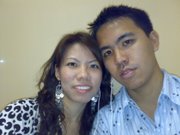Found this articular meaningful. Extract from MSN.
When high school pals Alexandra Robbins and Abby Wilner, now both 25, got together over lunch several years ago to catch up on their lives after college, they were both ready to tell some glowing stories about how well they were doing.
"At first, we both said we were having a great time," recalls Robbins, an English and American studies double major in college, now working in the Washington, D.C., bureau of the magazine The New Yorker. But before the conversation went much further, the fronts that twentysomethings often put up vanished. Both women admitted they were feeling unhappy, confused, and somewhat adrift.
"Then we started seeing that many of our friends were feeling the same way," Robbins says. "And there weren't really any resources to help us deal with what we were going through."
So Robbins and Wilner decided to create one themselves. The result, based on their own experiences and several hundred interviews with fellow twentysomethings who graduated from college in the past few years, is their book, Quarterlife Crisis: The Unique Challenges of Life in Your Twenties.
It goes without saying that when you interview more than 200 of your peers, you learn a few things you'd like to pass along to others. For Robbins and Wilner, their book and its accompanying Web site are vehicles for doing just that. They also welcomed the opportunity to offer career and personal advice here--particularly for those in the middle of a confusing, demoralizing quarterlife crisis.
Here are a few of Robbins and Wilner's recommendations:
Don't have a career plan? Don't worryYou don't need to freak out if you have no idea what you want to do with your life, stresses Wilner, a Web administrator in Washington, D.C., who majored in psychology in college. "I temped and got a taste of various fields and companies out there before I settled into my first permanent job," she says. "So don't let those external pressures get to you, don't think that all those people with plans have everything figured out, and don't think of it all as some kind of race and that other people are ahead of you. We all backtrack at some point as we make shifts in our plans. That's just the way it is."
Separate a job's meaning from its trappings"Forget about how much money a job will pay you, forget about societal prestige, and forget about what your parents and friends think about your job," says Robbins. "You have to figure out what's meaningful to you in your career, and what will warm your heart and make you want to jump out of bed each morning."
Robbins knows what she's talking about. Three weeks after she graduated from Yale University, she took the first job offer she got after being "completely seduced by the trappings. The pay was wonderful, I liked the people, I had my own office with a door, and my commute was only 15 minutes."
There was only one problem: "The work sucked," she deadpans.
She lasted for eight months but was miserable the whole time. Don't make the same mistake, she stresses.
Scared, lost, or clueless about your career? You're normalMaybe you're questioning yourself and your place in this world more than ever. Maybe you're barraging yourself with intense self-interrogation, as Robbins puts it. Maybe you're filled with anxiety and fear. And maybe you believe you're the only twentysomething who feels so confused.
You're not, Wilner emphasizes.
"One thing I honestly wish is that I had done the research for this book even earlier, because that in itself helped me tremendously," she says. "Listening to everyone's experiences, anxieties, thoughts, fears, hopes and dreams…so much like my own. Who knew?"
It took Robbins and Wilner hundreds of hours and conversations with their peers to learn that they--and their peers--were normal. You are too.
"If I had known back then what I know now, I wouldn't have beaten myself to a mental pulp so frequently," Robbins says. So neither should you.
Tuesday, June 27, 2006
Subscribe to:
Post Comments (Atom)

No comments:
Post a Comment